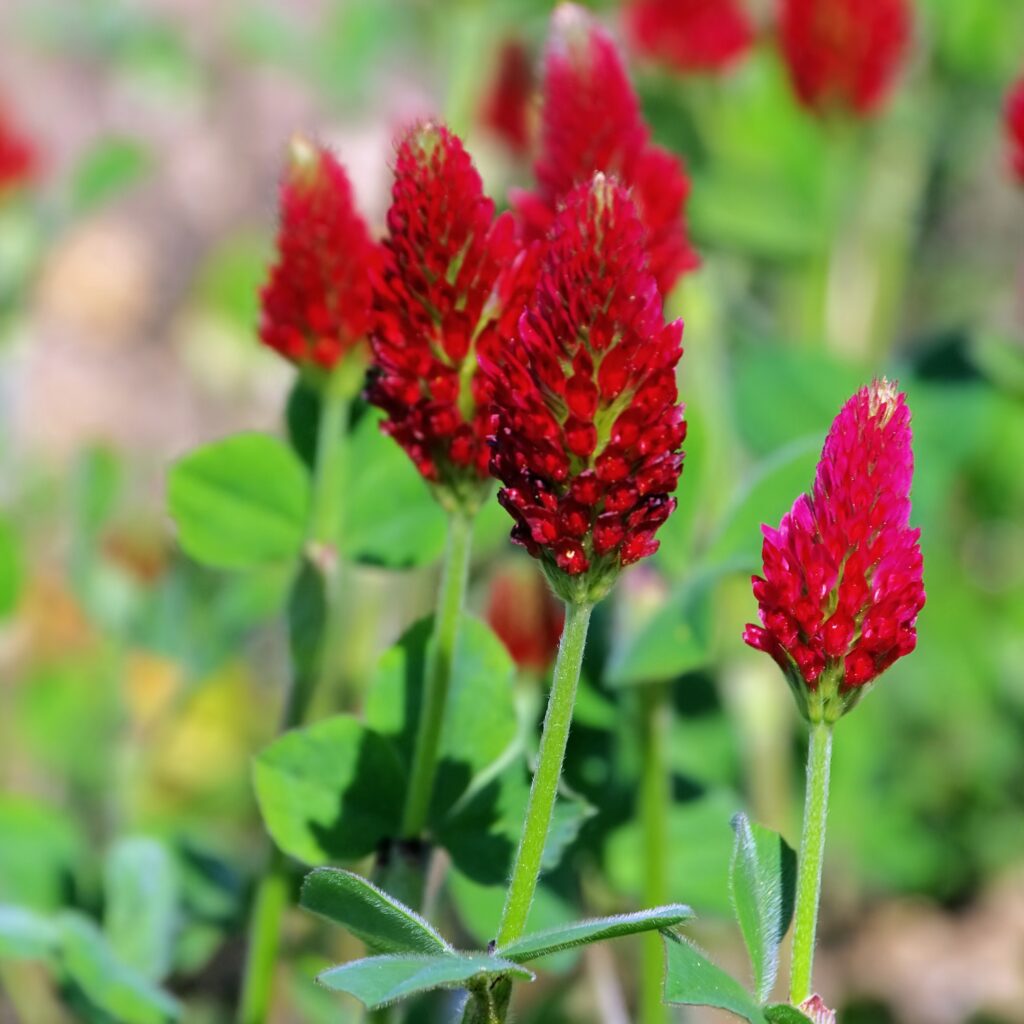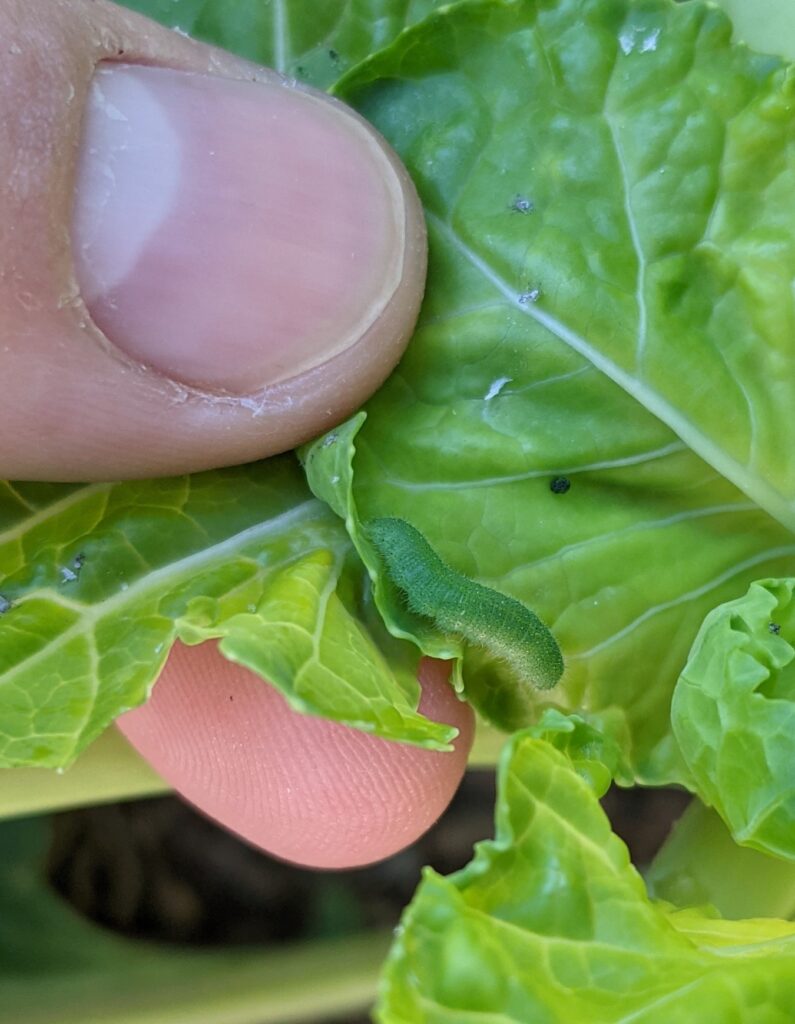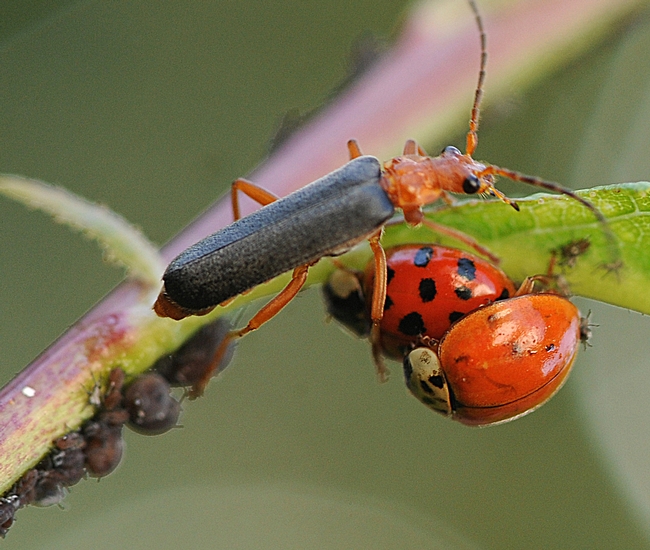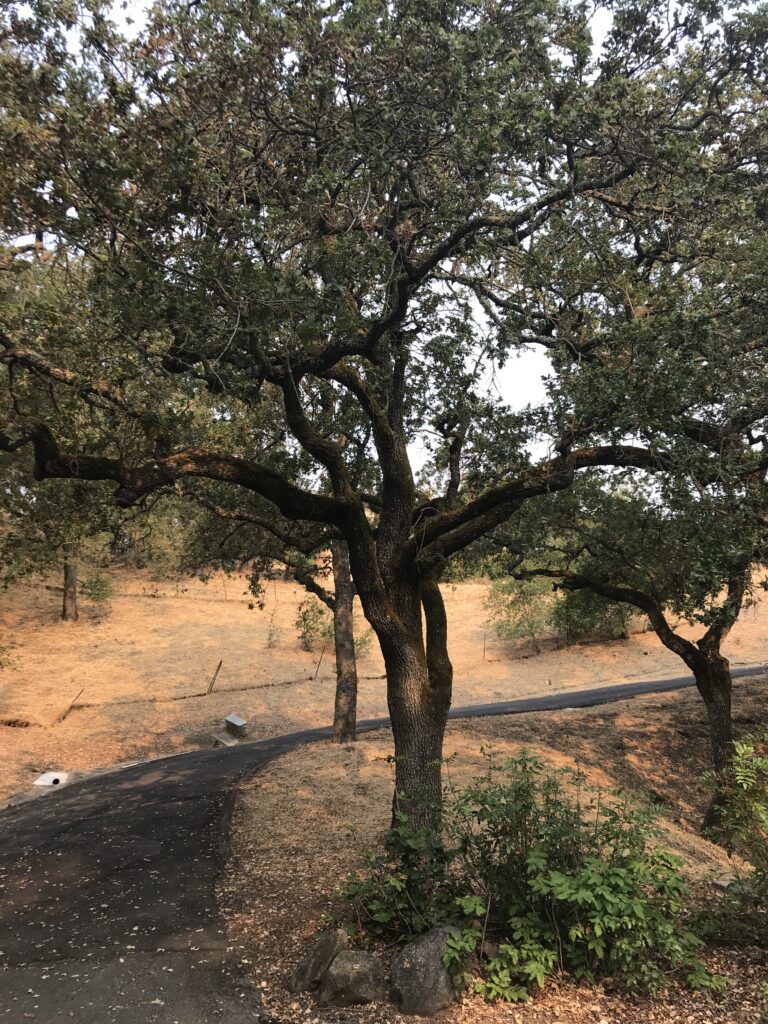
Dedicated gardeners know that January is a busy month of preparing the garden for the new growing season. Fruit trees and roses need trimming and spraying (with an all-natural spray of course). This is a great time of the year as well to pour over online plant and seed catalogues while resting comfortably indoors while winter winds howl and rains fall – we hope.
The new year is also a time of reflection and ideas on how to improve upon last year. That won’t be difficult considering the great pandemic year of 2020. While you are reflecting, let’s review the knowledge we acquired this past year about naked gardening in the Diablo Gazette. How about a fun quiz? I never recommend cheating, but all of 2020’s back issues are archived on this site. Answer below.
1 Which of the following bugs is NOT beneficial to your garden?
a) Lady bird beetles
b) Lacewings
c) Aphids
d) Soldier bugs
2 What should you NOT wear when gardening in hot summer sun?
a) A broad-brimmed hat
b) SPF-30 sun block on exposed skin
c) Insect repellent
d) Tight-fitting designer jeans
3 Which of the following beautiful blooming plants are easily propagated at home to save on purchases?
a) Geraniums (pelargoniums)
b) Sages of all types
c) Oleanders
d) All of the Above
4 What should you NOT do to keep your home and garden fire-safe?
a) Trim tree limbs high up off the ground – at least 6-8 feet
b) Plant high-resin bushes like manzanita and California lilac (ceanothus) close to your house
c) Maintain a green, well-watered lawn as a fire break
d) Keep plantings under trees low and trimmed of dead growth
Naked’s In-Box
Fran C. writes: “I have quite a bit of this weed growing in my raised bed…It doesn’t seem to have deep roots but I wonder if it’s stealing nutrients from my tomato and squash. Should I pull all of it out?”
NG: Yes, Fran pull it out! By the photo it looks like a common weed, thyme-leaf spurge. It spreads and seeds quickly and steals valuable nutrients, especially water from your vegetable beds. If you like showy cover crops, my favorites are crimson clover and fava beans, which add nutrients to your planting beds during the off-season.


James W. writes: “We recently started our own vegetable garden. Unfortunately, we’ve had a problem with caterpillars. We’ve been using a homemade garlic spray which has helped a little bit but they’re still very active. Do you recommend anything to keep them away?”
NG: Your nice photos, James, implicate a common pest called army worms. In large numbers, they can destroy winter crop leaves, such as cabbage, lettuce, broccoli, Brussel sprouts, and collards. The plants may not survive if the caterpillars are not eliminated. Picking them off with gloved hands is an all-natural control. Seal them in a bag or leave them on a remote fence post for bird food. If you spray, stick with naturally acidic ingredients, like garlic or hot pepper, mixed with a tablespoon of Dawn dish soap to clog their breathing pores, and a pinch sea salt to dry the worms out.
Thank you James W. and Fran C. for your all-natural gardening questions. Email your comments and questions to: NakedGardener@diablogazette.com. In some cases these may appear in future columns.
The Naked Gardener wishes you and your families a happier and healthier New Year!
Quiz Answer

1 c Aphids. All of the other bugs are very beneficial and eat pesty aphids by the hundreds. A good reason not to use pesticides in a naked garden, which kill all of your bug-friends also.
2 d Tight-fitting designer jeans. You should always wear the other three protective items, even if you wear nothing else!
3 d All of the above. Your favorite garden center or online plant site is a great place to shop for interesting new varieties. But propagating your own favorites into blank areas of your garden saves money and is fun and rewarding also.

4 b Planting resin-filled bushes such as manzanita or California lilac near your home is a fire hazard. They explode into flame if burning embers drift into them. Be fire-wise and maintain your garden with the goal of protecting as well as beautifying your valuable real estate.

